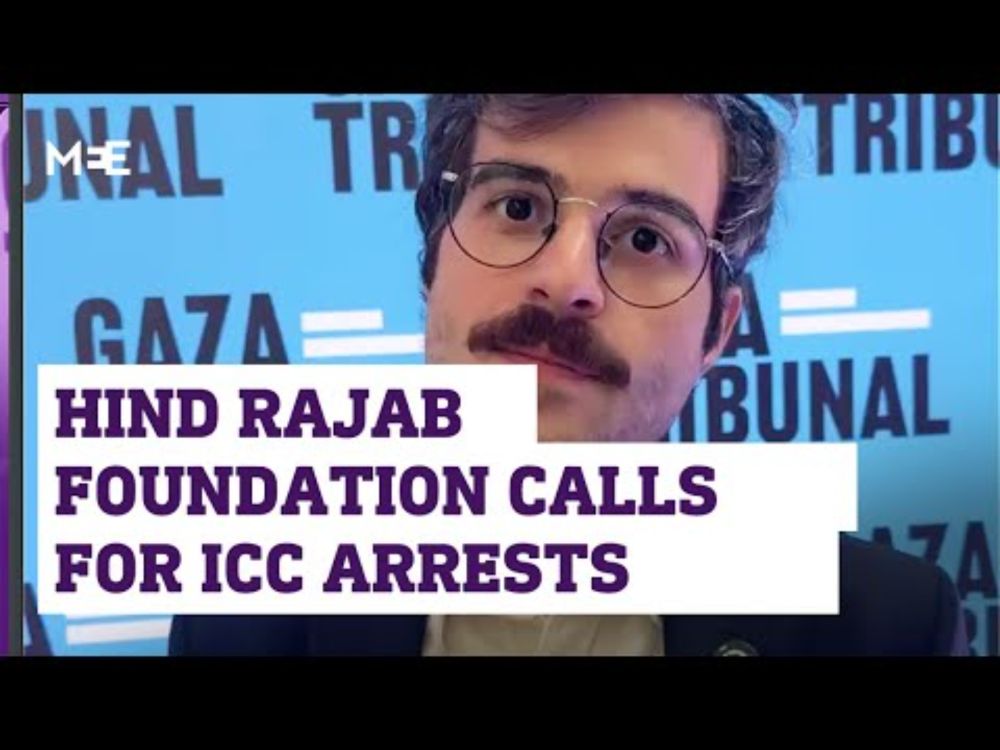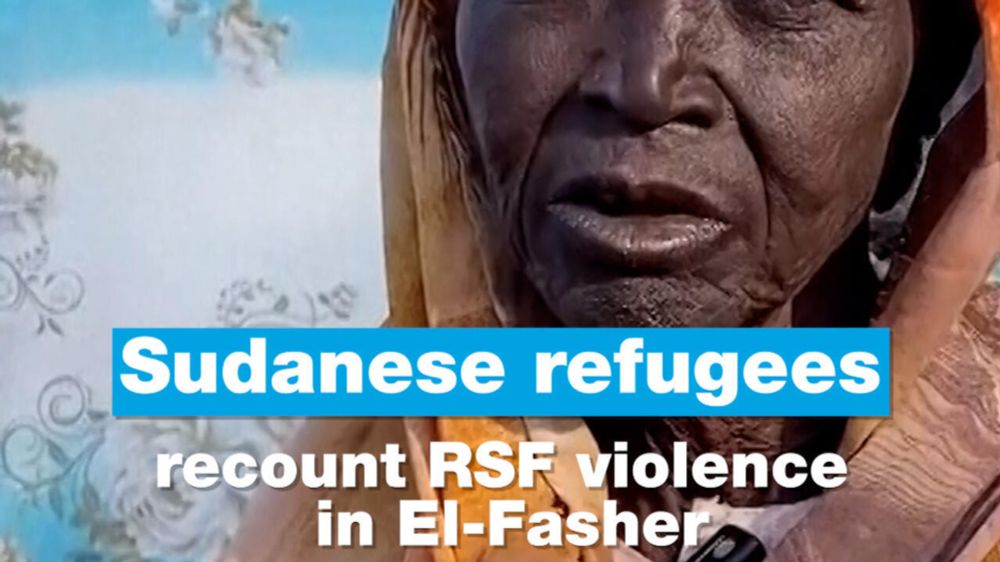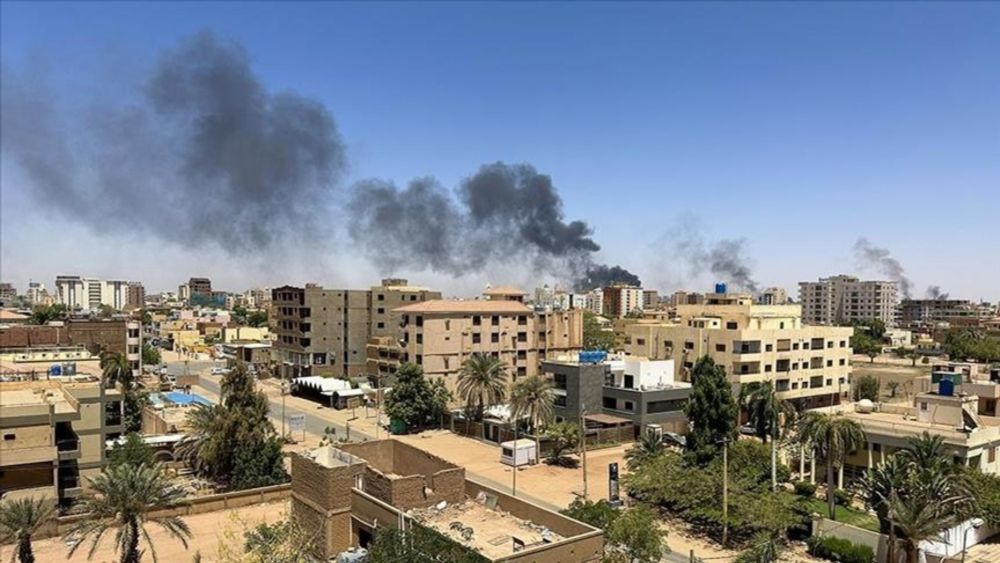Reports of mass killings in Sudan have echoes of its dark past
Reports of mass killings in Sudan have echoes of its dark past
Those who have managed to flee el-Fasher come with stories of extreme violence and killings
Emerging evidence of systematic killings in the Sudanese city of el-Fasher have prompted human rights and aid activists to describe the civil war between the paramilitary Rapid Support Forces (RSF) and the military as a "continuation of the Darfur genocide".
The fall of el-Fasher, in the Darfur region, after an 18-month RSF siege brings together the different layers of the country's conflict – with echoes of its dark past and the brutality of its present-day war.
The RSF emerged from the Janjaweed, Arab militias who massacred hundreds of thousands of Darfuris from non-Arab populations, in the early 2000s.
The paramilitary force has been accused of ethnic killings since its power struggle with the army erupted into violence in April 2023. The RSF leadership has consistently denied the accusations - although on Wednesday its leader Gen Mohamed Hamdan Dagalo admitted to "violations" in el-Fasher.
The current charges are based on apparent evidence of atrocities provided by the RSF fighters themselves.
They have been sharing gruesome videos reportedly showing summary executions of mostly male civilians and ex-combatants, celebrating over dead bodies, and taunting and abusing people.
Accounts from exhausted survivors also paint a picture of terror and violence.
"The situation in el-Fasher is extremely dire and there are violations taking place on the roads, including looting and shooting, with no distinction made between young or old," one man told the BBC Arabic service. He had escaped to the town of Tawila, a hub for those displaced from el-Fasher.
Another woman, Ikram Abdelhameed, told the Reuters news agency that RSF soldiers separated fleeing civilians at an earthen barrier around the city and shot the men.
And satellite images collected by Yale University's Humanitarian Research Lab show evidence of what seem to be massacre sites – clusters of bodies and reddish patches on the earth that the analysts believe could be blood stains.
El-Fasher "appears to be in a systematic and intentional process of ethnic cleansing of… indigenous non-Arab communities through forced displacement and summary execution", the Yale researchers say in a report.El-Fasher was repeatedly shelled during the RSF siege - this picture from 7 October shows a wrecked classroom where people were sheltering
There is a clear ethnic element to the battle for el-Fasher, because local armed groups from the dominant Zaghawa tribe, known as the Joint Force, have been fighting alongside the army.
The RSF fighters see Zaghawa civilians as legitimate targets.
That is what many survivors of the paramilitary takeover of the Zamzam displaced persons camp next to el-Fasher reported earlier this year, according to an investigation by the medical charity Doctors Without Borders (MSF).
The army has also been accused of targeting ethnic groups it sees as support bases for the RSF in areas it has recaptured, including the states of Sennar, Gezira and some parts of North Kordofan.
"Whether you're a civilian, wherever you are, it is not safe right now, even in Khartoum," says Emi Mahmoud, strategic director of the IDP Humanitarian Network which helps coordinate aid deliveries in Darfur.
"Because at the flip of a hat, the people in power who have the guns, they can and will continue to falsely imprison, disappear, kill, torture, everyone."
Both sides have been accused of war crimes - ethnically motivated revenge attacks are part of that.
It was Sudan's military government in 2003 that weaponised ethnicity – enlisting the Janjaweed to put down rebellions by black African groups in Darfur who accused Khartoum of politically and economically marginalising them.Some women and children have managed to make it to Tawila but there are concerns that many people are still in el-Fasher
The pattern of violence established then has been repeated in Darfur now, says Kate Ferguson, the co-founder of NGO Protection Approaches.
This was most evident in the 2023 massacre of members of the Masalit tribe in el-Geneina in West Darfur, which the UN says killed up to 15,000 people.
"For more than two years, the RSF have followed a very clear, practiced and predicted pattern," Ms Ferguson said at a press briefing.
"They first encircle their target town or city, they weaken it by cutting off access to food, to medicine, to power supplies, the internet. Then when it's weakened, they overwhelm the population with systematic arson, sexual violence, massacre and the destruction of vital infrastructure. This is a deliberate strategy to destroy and displace, and that's why I feel the appropriate word is genocide."
The RSF has denied involvement in what it has called "tribal conflicts", but Gen Dagalo, widely known as Hemedti, appeared to be hearing expressions of mounting international outrage, including from the UN, the African Union, the European Union and the UK.Gen Mohamed Hamdan Dagalo has said alleged killings will be investigated
He released a video saying he was sorry for the disaster that had befallen the people of el-Fasher in a war that had been "forced upon us" and admitted there had been violations by his forces, promising they would be investigated by a committee that has now arrived in the city.
Any "soldier or any officer who committed a crime or crossed the lines against any person… will be immediately arrested and the result [of the investigation] to be announced immediately and in public in front of everyone," the general pledged.
However, observers say similar promises made in the past - in response to accusations of a massacre in the Darfui city of el-Geneina in 2023, and alleged atrocities during the group's control of the central state of Gezira - were not fulfilled.
It is also not clear how much control the RSF leadership has over its foot soldiers – a loose mix of hired militias, allied Arab groups, and regional mercenaries, many from Chad and South Sudan.
"The reality is that the way that the RSF is, it's very, very hard to believe that a command is going to be given by Hemedti, and then people on the ground are going to follow it," says aid co-ordinator Ms Mahmoud. "By that time, we'll have lost many, many people."
Aid groups and activists warn that if the pattern of the past two years is allowed to continue, it could happen again. They stress that the el-Fasher killings were entirely predictable, but the international community failed to act to protect civilians despite ample warning.
"The reality is that we laid these options out multiple times over six meetings with UN Security Council elements, with the US government, with the British government, with the French government, basically saying they had to be ready for a protection kinetic option [direct military action] in the summer of last year," says Nathaniel Raymond, executive director of the Yale Humanitarian Research Lab.
"This cannot be something settled by a press conference. It has to be something settled by immediate action."
In particular, activists are urging pressure on the United Arab Emirates, which is widely accused of providing military support to the RSF. The UAE denies this despite evidence presented in UN reports and international media investigations.
"This is exactly like the siege of Sarajevo," says Ms Mahmoud, referring to the Srebrenica massacre during the Bosnia war, which galvanised international action. "This is the Srebrenica moment."
More BBC stories on Sudan:
Go to BBCAfrica.com for more news from the African continent.
Follow us on Twitter @BBCAfrica, on Facebook at BBC Africa or on Instagram at bbcafrica
Adblock test (Why?)

















